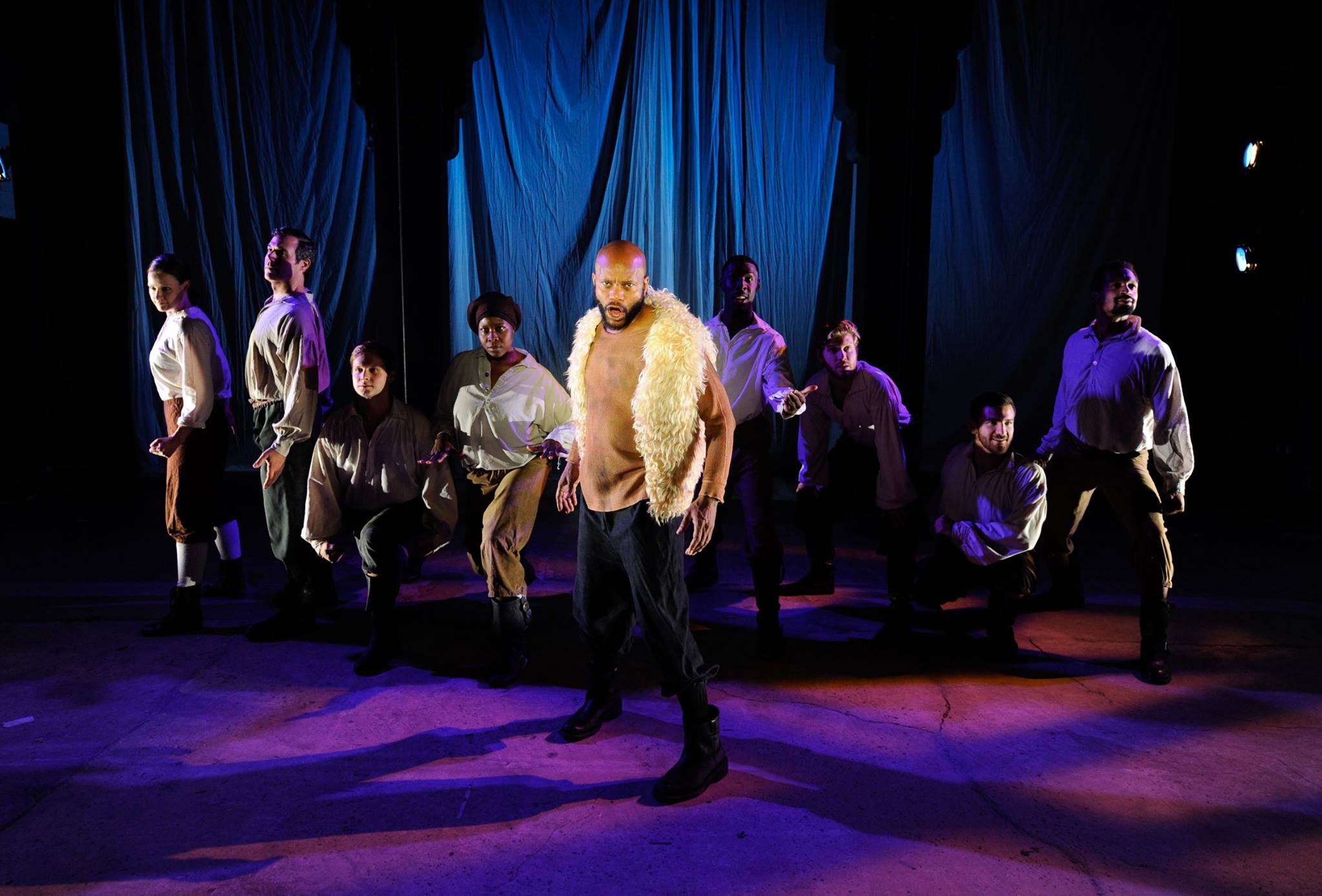We've just about hit the mid-point of our run of MY FAIR LADY at Quintessence Theatre Group. Attendance continues to swell, and I think there is actually a palpable buzz around the production here on the northwest side of Philadelphia. An extension week (through December 23rd) has already been announced, and I have been approached by many patrons who have bragged eagerly about attending the show multiple times.
The materials we have to work with - both George Bernard Shaw's original text (from his play, PYGMALION, of course), and the score composed for the musical by Lerner & Loewe - are iconic and legendary for a reason, and it is a real joy to play it with such a talented and committed ensemble of performers. I cannot imagine a better group of people to be tackling this show with.
It is a testament to Shaw's genius that the plot he conceived, and the characters who move through it can still evoke such a strong response with our audiences. Many of the issues it presents and wrestles with are even more vital today than ever. I have, understandably, spent a great deal of time in the last few months, pondering Professor Higgins and his point of view. First, I must say that I am incredibly grateful to Mr. Shaw for granting us (and me) a character packed full up with both brilliance and flaws, virtuosity and deplorability, who delights and disgusts in both extraordinary ways and equal measure. He feels incredibly human to me, three-dimensional and so very, very real. He is not a collection of randomly assigned character traits, but a HUMAN, whole and true, whose wit, and fears, and triumphs and failings are all tightly interconnected and constructed by a playwright who was not only better than most, but at the height of his powers. While I cannot fault anyone in this particular moment of our social and cultural history who chooses to write him off as a simple misogynist, I find I cannot fully agree with that distilled assessment. Henry Higgins is every bit the titan of personality that his counterpart, Eliza Doolittle is (and I like to think that my performance is coming something close to doing him that justice).
But regarding Higgins and Eliza, there is no doubt in my mind that one entity is greatly diminished without the other, and I am incredibly grateful to be sharing that task with Leigha Kato. She is a "tower of strength, a consort battleship," and brings to her Eliza not only a full-voiced glory, but a fire and intelligence that I greatly admire. She is the best of all possible scene partners. Marcia Saunders, Doug Hara, Bradley Mott, and Lee Cortopassi are each giving their own master classes on stage every night as well, and the game just keeps getting better every time we play it. It hasn't been easy, this one, but I've found it incredibly rewarding, and I look forward every night to walking into the theatre with my co-workers to try the whole thing all over again.
But enough of me blathering on, and on. Here's what a few of the professional opinionators had to say...
"MY FAIR LADY gets the Quintessence treatment: intimate, stripped down, concentrating on character, language, and action. It's a success. An evening full of heady emotion, the spectacle of people changing before your eyes, and a profound closing truth, all the more profound right now." - John Timpane, writing for The Philadelphia Inquirer
"Quintessence Theatre's MY FAIR LADY is a jubilant mix of beautiful songs, dancing, magic, social politics... and elocution. It's a splendid show, a holiday gift" - Kathryn Osenlund, writing for phindie.com
"Kato's Doolittle has the perfect insufferable Henry Higgins to teach her how to be a lady with proper English: Gregory Isaac. He plays the nasty know-it-all linguist with a smirk that seems to be born to the character." - Howard Shapiro, writing for WHYY
And finally I want to share a thought that Amanda Morton, our incredibly talented 2nd piano player (though really it's more like Piano 1, and 1A), posted on Instagram about the show just before our opening night. I found it very thoughtful and insightful:
"I grew up loving this show, then discovered problems with it as i got older, but have somehow fallen back in love with it thanks to [director] Alexander Burns' thoughtful, intelligent hand in revealing the complexity of a dynamic that, at first glance, can be repugnant. However, it seems to me that Eliza and Henry are looking to be understood, and perhaps find a more evloved kind of love that acknowledges its flaws from the get and doesn't mind a lively verbal spar. It is not our commecial vision of relationships, but it's deeply human and for that reason, touches me."
Gregory Isaac as "Higgins" and Leigha Kato as "Eliza". Photo by Shawn May.
Doug Hara as "Col. Pickering". Photo by Shawn May.
The Ensemble in the Ascot Gavot. Photo by Shawn May.
Leigha Kato as "Eliza," and Gregory Isaac as "Higgins". Photo by Shawn May.


































